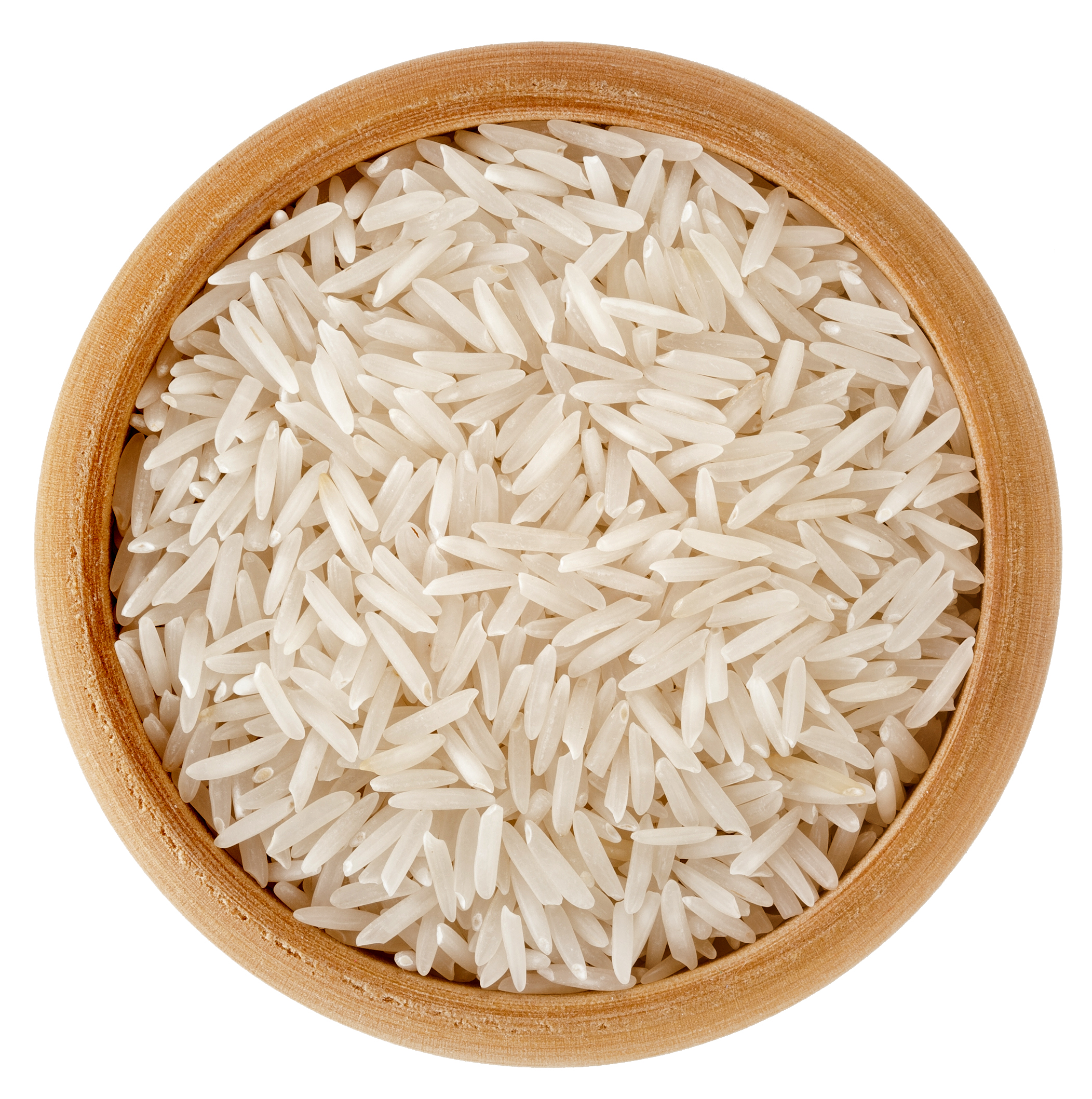“The fight for Basmati rice will continue for about a decade. Moreover, Basmati exports of both the countries will be heavily disrupted until the conflict is resolved by an amicable agreement.”
 A decade-long legal battle over the fragrant, long-grain Basmati rice is heating up between neighboring countries, India and Pakistan. Both countries are attempting to claim exclusive ownership over Basmati in the lucrative European market, and the battle is now coming to a boil.
A decade-long legal battle over the fragrant, long-grain Basmati rice is heating up between neighboring countries, India and Pakistan. Both countries are attempting to claim exclusive ownership over Basmati in the lucrative European market, and the battle is now coming to a boil.
Geographical Indications (GIs) establish intellectual property rights (IPRs) for products that originate from specific regions and attribute qualities, reputation or other characteristics linked to the geographic area. GIs are covered under the Paris Convention for the Protection of Industrial Property, and is also governed by the World Trade Organization’s (WTO’s) Agreement on Trade-Related Aspects of Intellectual Property Rights (TRIPS). A Protected Geographical Indication (PGI), a component of GI, emphasizes the relationship between the specific geographic region and the name of the product. Unlike Protected Designation of Origin, in which every part of production, processing and preparation have to occur in a particular region, PGI status protects the names of products linked to a specific region, where at least one of the stages of production, processing or preparation takes place.
In the European Union (EU), products protected by GIs are legally protected against imitation and exploitation within both the EU and in the non-EU countries that have signed a specific protection agreement. Furthermore, GI protection could be granted to the products of Non-EU countries provided that they have signed a bilateral or regional agreement with the EU.
The Basmati Battle
In 2008, both India and Pakistan discussed filing a joint application before the EU to register Basmati as a GI, but this plan was derailed following the 2008 Mumbai terrorist attacks. Nevertheless, the Agricultural and Processed Food Products Export Development Authority (APEDA) of India filed for domestic GI status of Basmati and the application was granted in 2016 under the Geographical Indications of Goods (Registration & Protection) Act, 1999.
India, in July 2018, had filed for PGI status for Basmati before the EU’s Council on Quality Schemes for Agricultural and Foodstuffs to claim exclusive rights over the commodity in the EU. In September 2020, the application was published in the Official Journal of the European Union after being subjected to a preliminary examination using appropriate methods in line with control procedures. The application stated:
Basmati is grown in various parts of India as a special long grain aromatic rice. It is raised and produced in a particular geographical region of the Indian subcontinent, below the foothills of the Himalayas. The area is a part in northern India, below the foothills of the Himalayas forming a part of the Indo-Gangetic Plains (IGP).
India’s main grounds were that the origin and reputation of Basmati as a “long-grain, aromatic rice” from the IGP is found in tradition, folklore, scientific and culinary literature, and political-historical records. In the application filed before the European Commission, India did not claim that it is the only country that has the capability to produce Basmati. Moreover, the application was in compliance with the standards of product specification as provided under Article 7(1) of the Regulation (EU) No 1151/2012 of the European Parliament and of the Council.
The Regulation (EU) No. 1151/2012 of the European Parliament gives countries an option to file an opposition to a GI claim within three months of its publication in the Official Journal of the European Union. Pakistan, the second-largest exporter of Basmati, opposed this claim since it would adversely affect its exports, especially in the highly-rewarding EU market. A Notice of Opposition was filed by Pakistan against India’s claim over Basmati in late 2020. The main grounds for opposition were that both Pakistan and India produce Basmati, and, thereby it was a joint product of both the countries. The laws demand that a product has to be protected by the country’s GI laws before it may be registered on the international market. On January 27, 2021, Pakistan Commerce Advisor Abdul Razak Dawood announced that Basmati was granted GI status under the Geographical Indications (Registration and Protection) Act 2020. Furthermore, Pakistan’s Notice of Opposition was accepted by the European Commission in March 2021.
Disruption and Discord
Currently, the PGI status of Basmati is in the consultation stage. Consultations last for three months, but recently, India requested to extend it for an additional three months. The consultations will continue until September 2021, wherein the parties will try to negotiate an amicable resolution. If the parties are unable to reach an agreement, then the fourth stage of the trial will begin before the tribunal of the DG Agriculture, European Commission, in accordance with Decision 1999/468/EC.
The fight for Basmati will continue for about a decade. Moreover, Basmati exports of both the countries will be heavily disrupted until the conflict is resolved by an amicable agreement. The only possible solution is for the countries to submit a joint application. Joint ownership is a practical and mutually-beneficial option, since India and Pakistan are the only two Basmati rice producers in the world. Many commodities, such as the “Maasvallei Limburg” (wine), have been granted transactional GI status.
At present, it is too early to tell what the final decision of the European Commission will be, or who will end up as the right holder of Basmati in the EU market, but it is evident that the dispute has furthered the discord between these neighboring countries.
Image Source: Deposit Photos
Image ID:36635085
Copyright:Madllen

![[IPWatchdog Logo]](https://ipwatchdog.com/wp-content/themes/IPWatchdog%20-%202023/assets/images/temp/logo-small@2x.png)

![[[Advertisement]]](https://ipwatchdog.com/wp-content/uploads/2024/04/Patent-Litigation-2024-banner-938x313-1.jpeg)
![[Advertisement]](https://ipwatchdog.com/wp-content/uploads/2024/04/UnitedLex-May-2-2024-sidebar-700x500-1.jpg)
![[Advertisement]](https://ipwatchdog.com/wp-content/uploads/2024/04/Artificial-Intelligence-2024-REPLAY-sidebar-700x500-corrected.jpg)
![[Advertisement]](https://ipwatchdog.com/wp-content/uploads/2024/04/Patent-Litigation-Masters-2024-sidebar-700x500-1.jpg)

![[Advertisement]](https://ipwatchdog.com/wp-content/uploads/2021/12/WEBINAR-336-x-280-px.png)
![[Advertisement]](https://ipwatchdog.com/wp-content/uploads/2021/12/2021-Patent-Practice-on-Demand-recorded-Feb-2021-336-x-280.jpg)
![[Advertisement]](https://ipwatchdog.com/wp-content/uploads/2021/12/Ad-4-The-Invent-Patent-System™.png)






Join the Discussion
No comments yet.